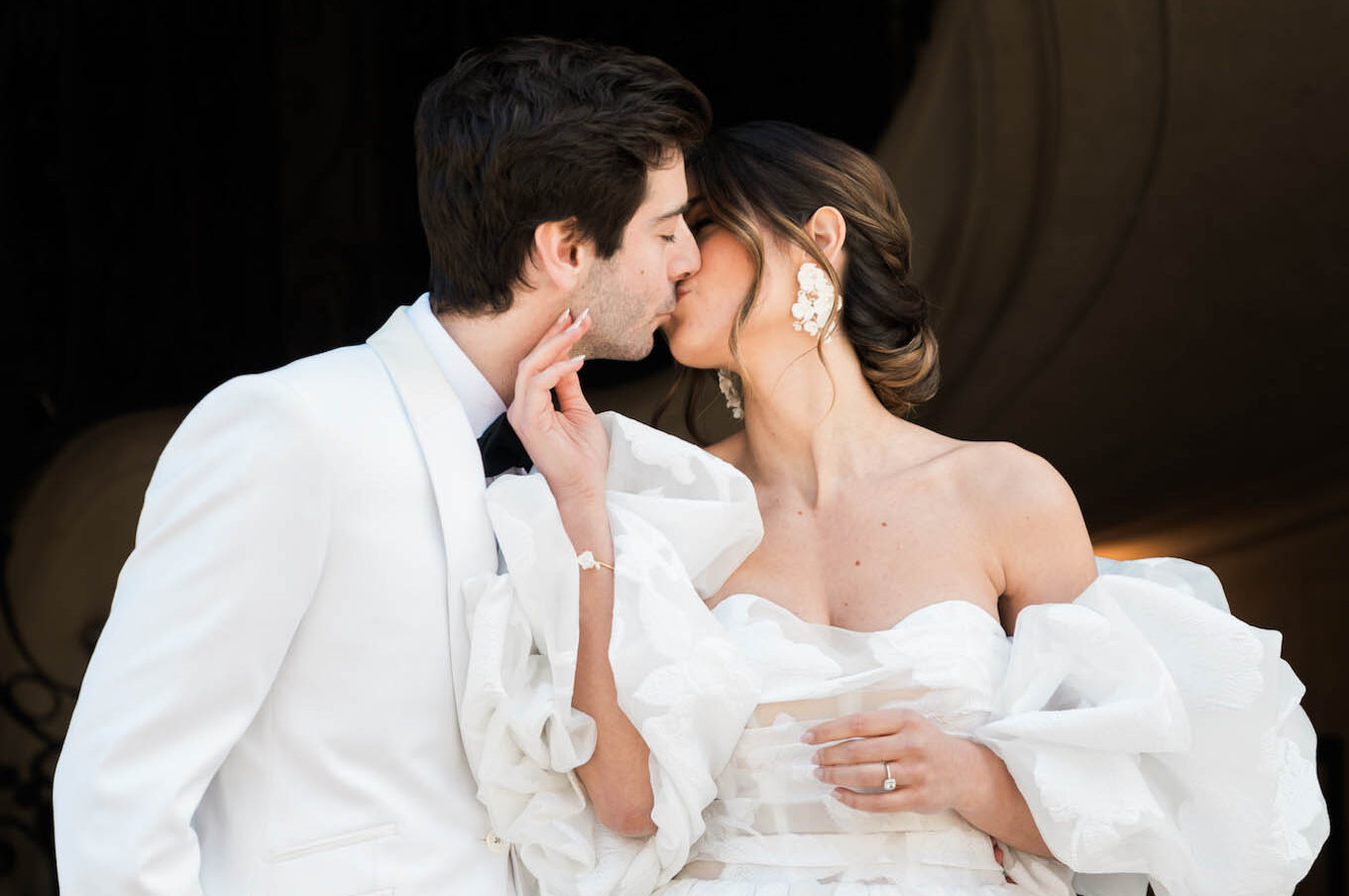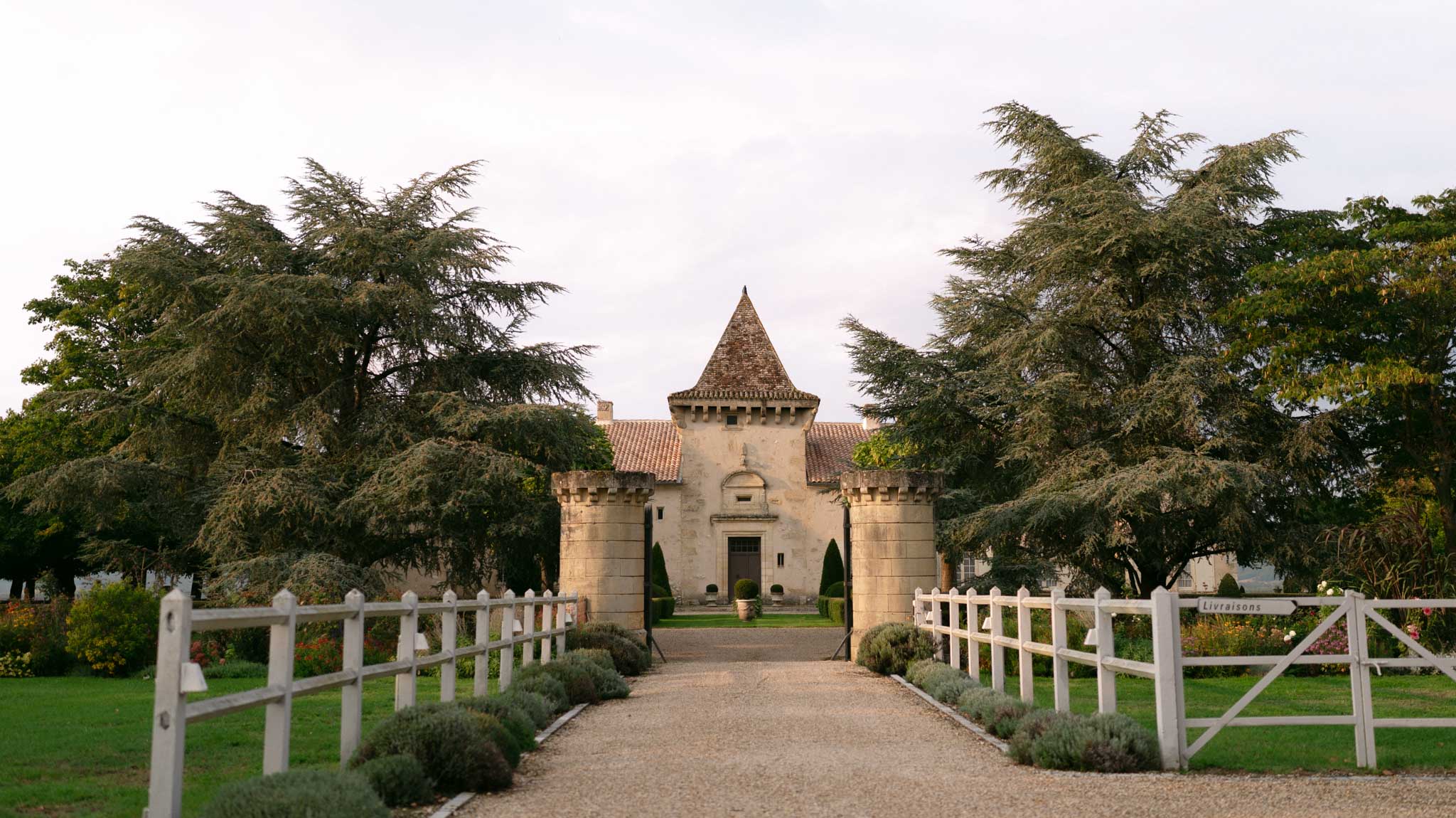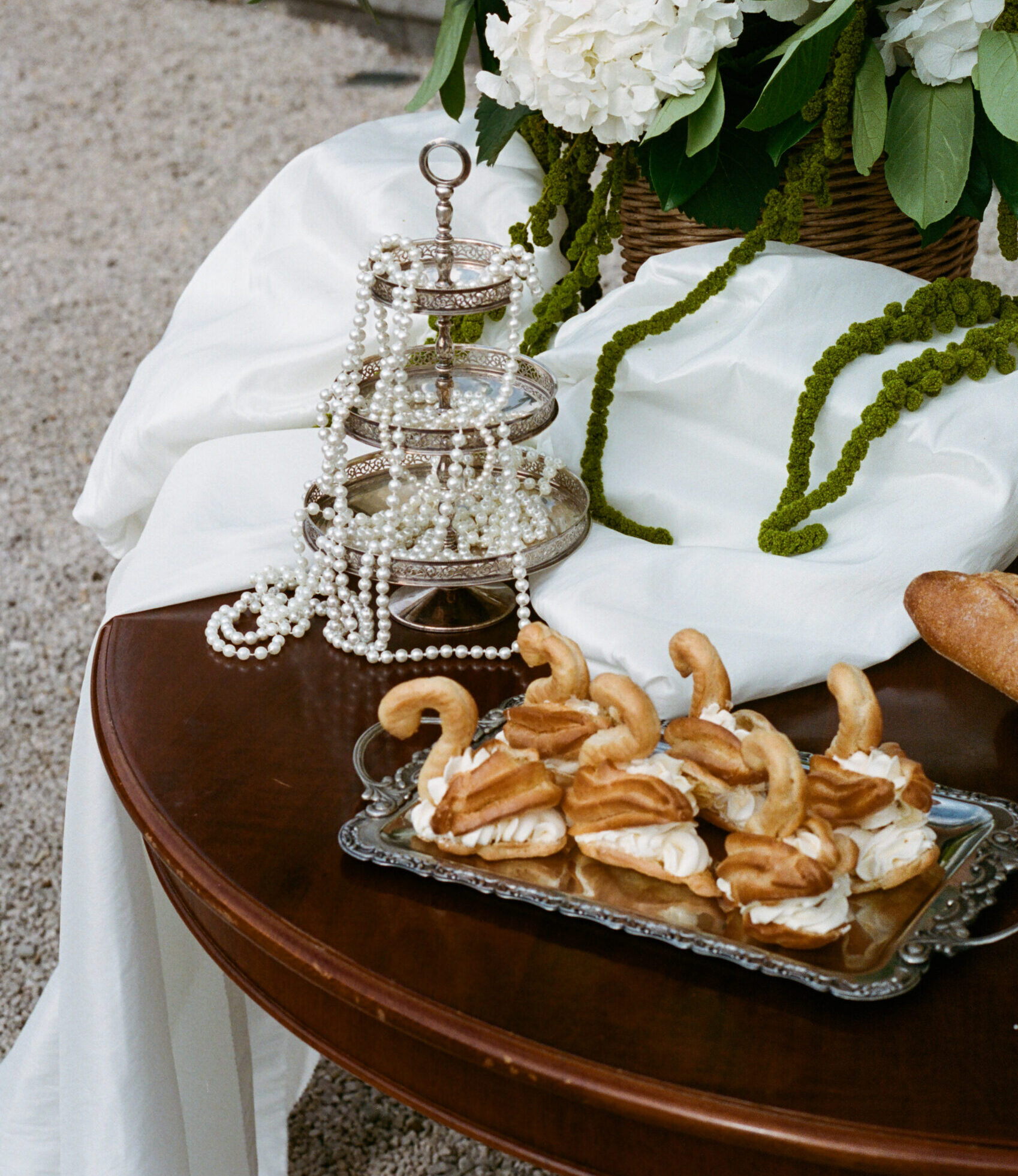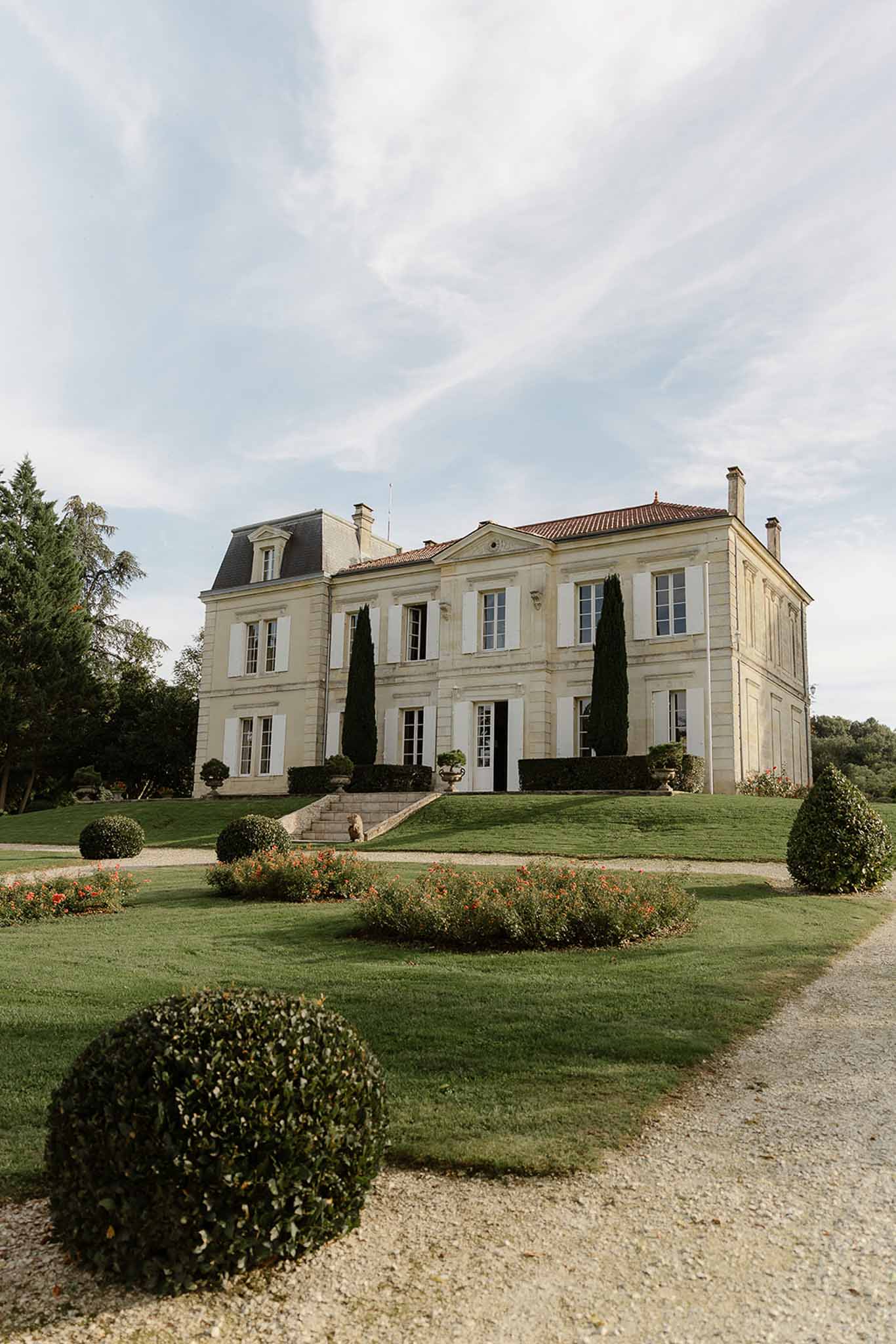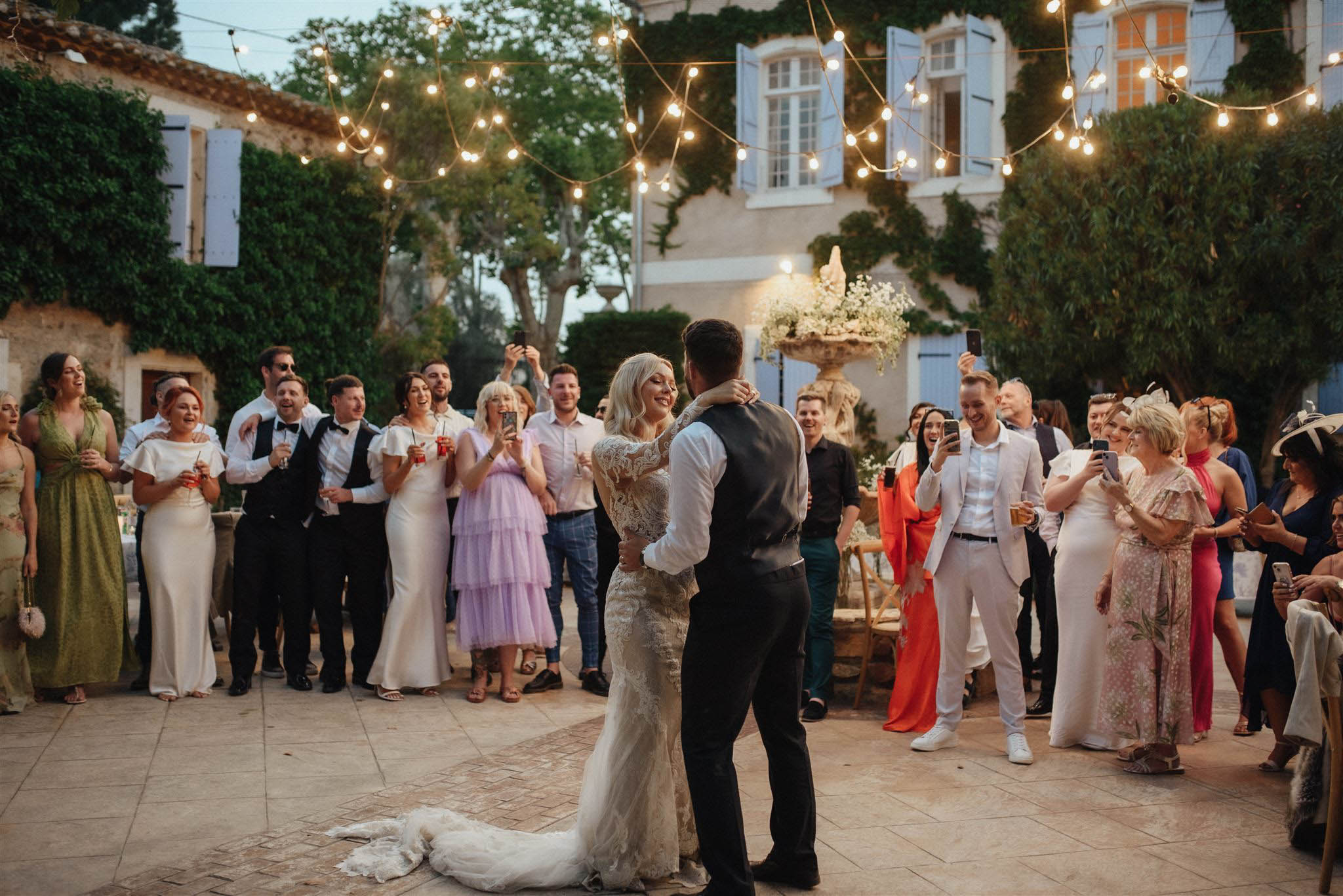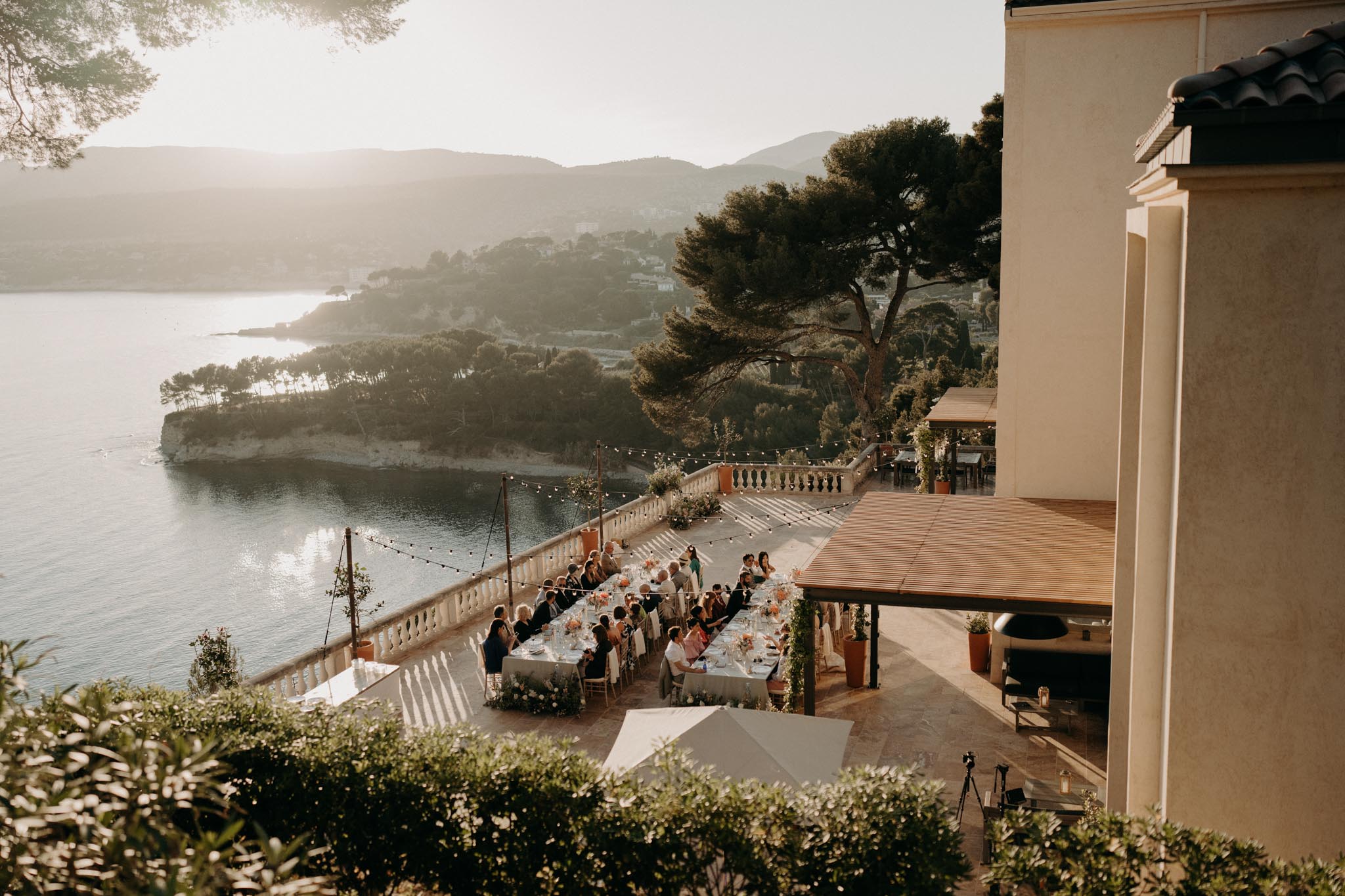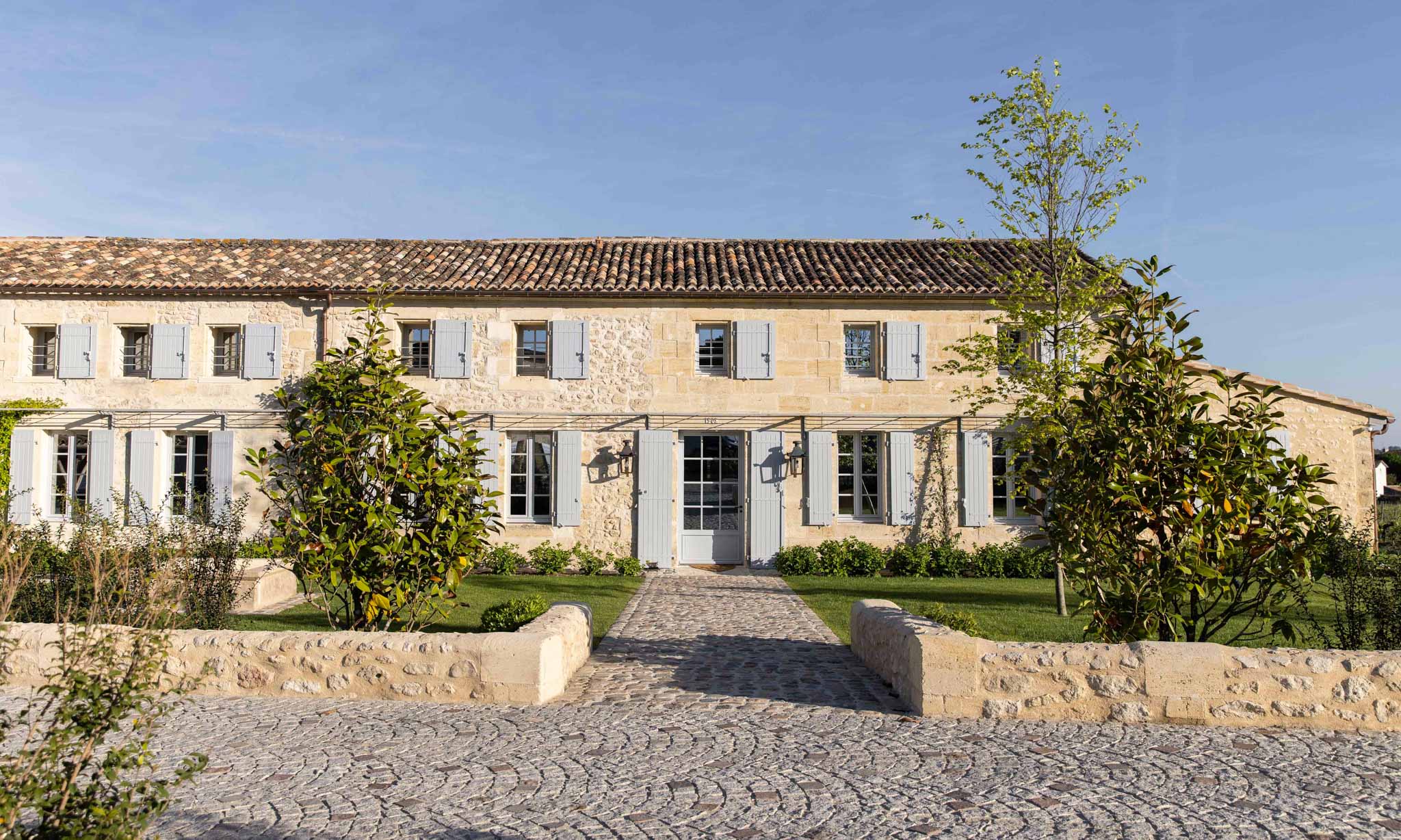That magical moment has arrived – you’re engaged and dreaming of a wedding in France. As you envision celebrating among elegant châteaux and picturesque vineyards, you’ll need an expert to transform these dreams into reality. Hiring a professional wedding planner is the key to ensuring every detail is flawlessly executed. Before finalizing your plans, securing a wedding planner contract is essential to outline expectations, services, and budget, ensuring a smooth and stress-free journey to your perfect day
Key Elements of Your Wedding Planning Contract
Contact Information
The contract should list clear, detailed contact information for both you and your planner, including phone numbers, email addresses, and any secondary contacts. This ensures open communication, especially when coordinating across time zones or handling last-minute updates.
Event Details
Your French wedding is likely more than a single-day affair. Include the dates, locations, and times for all planned events, from pre-wedding aperitifs to the post-wedding recovery brunch. Specify whether your planner will assist with coordinating these ancillary events.
Scope of Services: Your Destination Planner’s Role in France
French destination weddings often require additional coordination due to cultural and logistical nuances. Ensure your contract clearly defines the services your planner will provide:
In-Person vs. Virtual Meetings
Establish how and when you will meet with your planner during the planning process. Will initial consultations or vendor meetings be conducted virtually via video calls? Does the planner offer an in-person venue visit ahead of the wedding? For destination weddings, virtual check-ins early on can transition to face-to-face meetings closer to your big day.
Local Vendor Management
In France, wedding vendors often operate differently than in other countries, with contracts and communication conducted in French. Confirm if your planner will liaise with local florists, caterers, and musicians, and whether they’ll translate and negotiate vendor agreements on your behalf.
Cultural Guidance
French weddings have their own traditions, from the Champagne tower to the pièce montée. Ensure your planner is equipped to incorporate these elements while balancing your personal preferences.
Guest Coordination
For couples inviting international guests, planners often arrange transportation, accommodation blocks, and even sightseeing activities. Clarify if these services are included or available for an additional fee.
Logistical Support for Destination Weddings
Hosting your wedding in France means you’ll likely need your planner on-site for several days. Make sure the contract addresses these specifics:
Travel and Accommodation for Your Planner
Will you cover their flights, ground transportation, or accommodation during their stay? Many couples include a provision for housing planners at or near the wedding venue to streamline communication.
Meals and Daily Expenses
Clarify if meal allowances for your planner (and any team members) are part of the agreement. This is particularly important if they are working long hours over multiple days.
On-Site Coordination
Confirm how many days your planner will be present in France. Will they arrive a day early to supervise setup or coordinate with vendors? Will they stay for the entire weekend to oversee multiple events?
Meetings and Communication
Frequency and Type of Meetings
Your contract should outline how often you’ll meet with your planner and through which platforms. For example:
-
- Virtual Planning Sessions: Ideal for early-stage discussions, especially if you’re planning from overseas.
- In-Person Venue Visits: Specify whether the planner will join you in France for venue scouting or tastings.
- Pre-Wedding Meetings: Ensure there’s a scheduled meeting within a few weeks of the wedding to finalize timelines and vendor details.
Communication Availability
French time zones may differ from yours, so it’s important to establish your planner’s working hours. Will they be available for calls outside regular business hours if you’re in another country? What’s their preferred communication method—email, WhatsApp, or a dedicated planning portal?
Final Countdown Communication
The weeks leading up to the wedding are critical. Ensure the contract specifies how frequently your planner will check in with you, your vendors, and your venue during this period.
Financial Clarity
Destination weddings often have additional expenses. Make sure your contract clearly addresses these:
Planner’s Fee Structure
Planners in France may charge a flat fee or a percentage of your overall budget. If it’s the latter, confirm how this is calculated and if it includes travel and accommodation costs.
Deposits and Payment Schedule
Specify how much is due upfront and when subsequent payments are required. Ensure all costs, including additional services like travel, are clearly itemized.
Refunds and Cancellations
Discuss refund policies in case of unforeseen circumstances like travel restrictions or venue cancellations. A good contract will also include rescheduling terms to protect you and your planner.
Legal and Contingency Clauses f
France’s unique legal environment means your planner’s contract should include the following:
Force Majeure
Protects both you and your planner in case of unforeseen events, such as natural disasters or government restrictions, that prevent the wedding from taking place.
Liability and Insurance
Ensure the contract clarifies your planner’s liability in case of vendor failures or accidents. Most professional planners in France carry liability insurance, which offers additional peace of mind.
Termination or Replacement
Specify what happens if your planner becomes unavailable. Will they provide a suitable replacement?
Dispute Resolution
For French weddings, contracts often specify that disputes will be resolved under French law. Confirm the jurisdiction and method (e.g., mediation or arbitration) in the contract.
Personalized Services for French Destination Weddings
Some wedding planners in France go above and beyond, offering specialized services to elevate your experience. If these are important to you, make sure they’re included:
- Bespoke Activities: Coordinating wine tastings in Bordeaux, perfume-making workshops in Grasse, or private yacht charters on the French Riviera.
- Local Expertise: Handling permits for historic venues or outdoor ceremonies in protected regions.
- Guest Gifting: Curating welcome gifts with local specialties like macarons, Champagne, or lavender sachets.
Why Insuring a Wedding Planner Contract Matters
You’ve probably noticed a theme throughout this guide – the perfect French wedding balances romance with reality, dreams with details. Your contract with your wedding planner is the cornerstone that makes this balance possible.
When every expectation is clearly outlined and every responsibility carefully defined, you’re free to focus on the fun parts: sampling local wines, choosing between lavender or roses, and imagining your first dance under the stars at your château.
Take time now to get these details right, and you’ll thank yourself later when you’re sipping champagne with your loved ones, celebrating your marriage in one of the world’s most enchanting settings. After all, the best love stories deserve the perfect beginning – and in this case, that starts with a well-planned partnership with your wedding planner.


